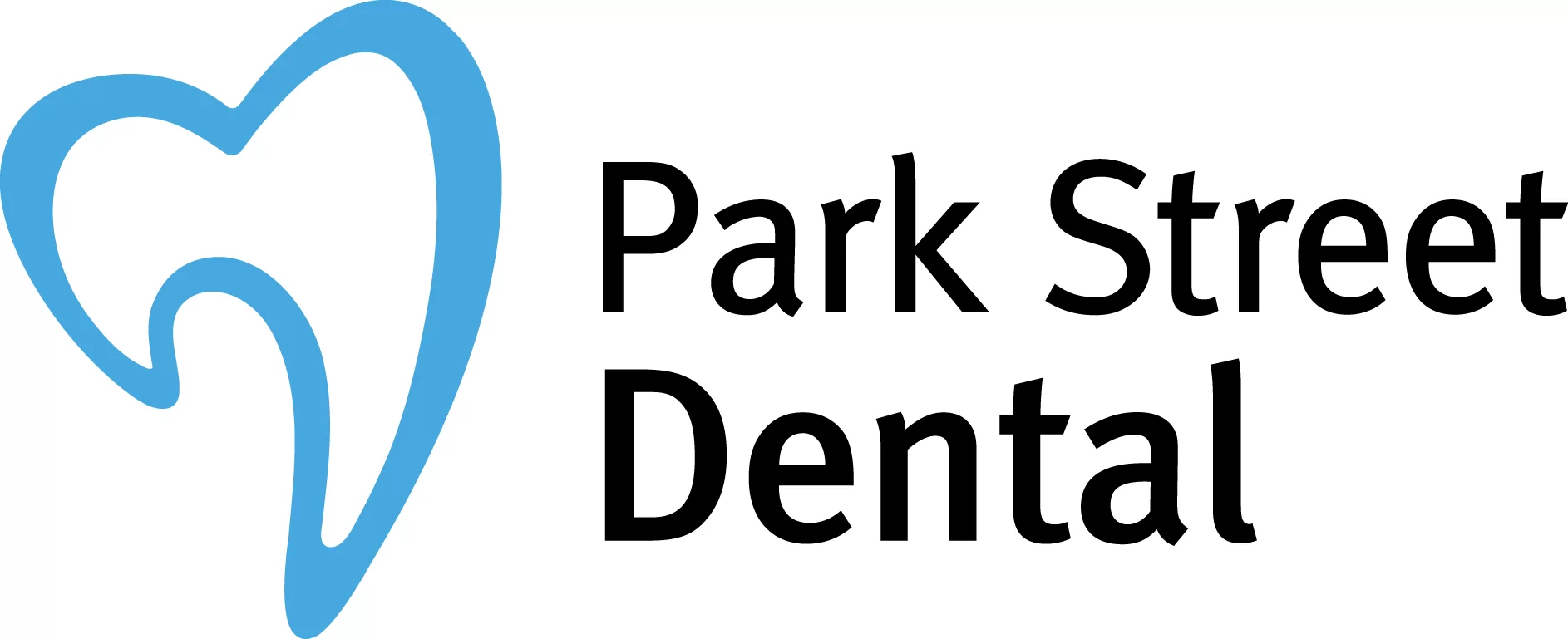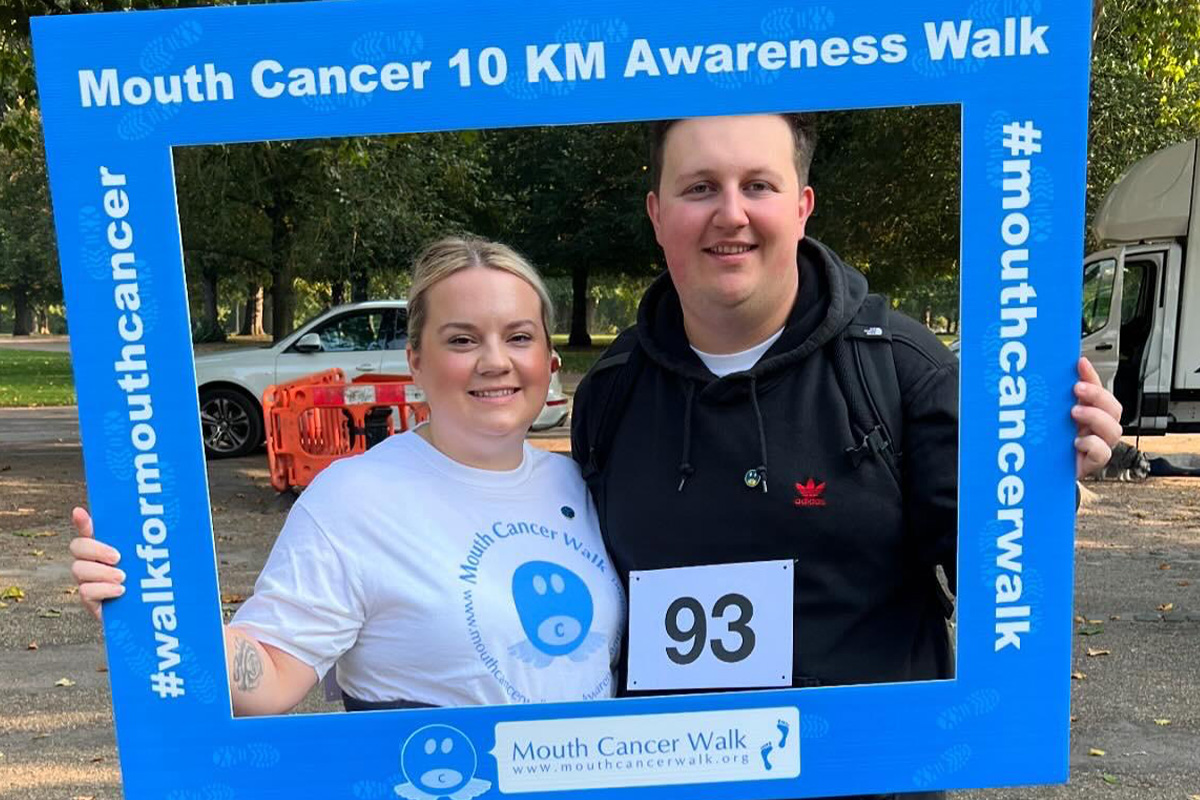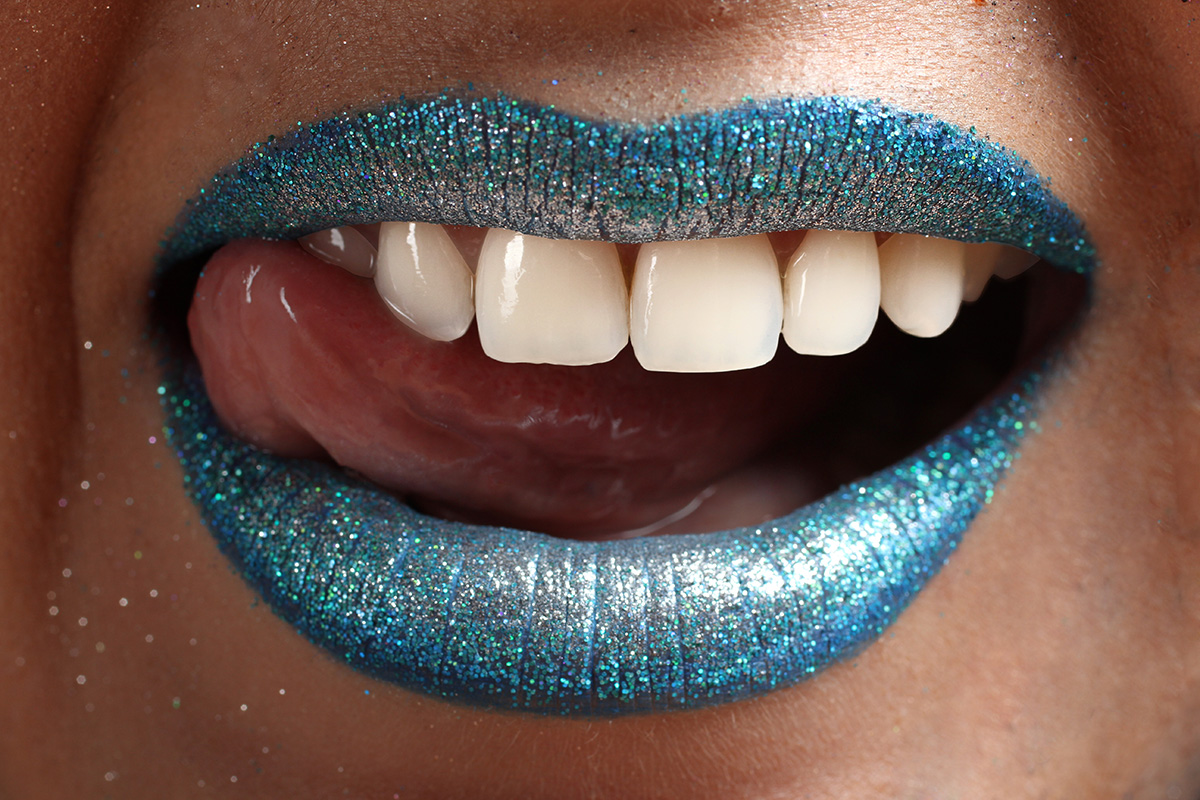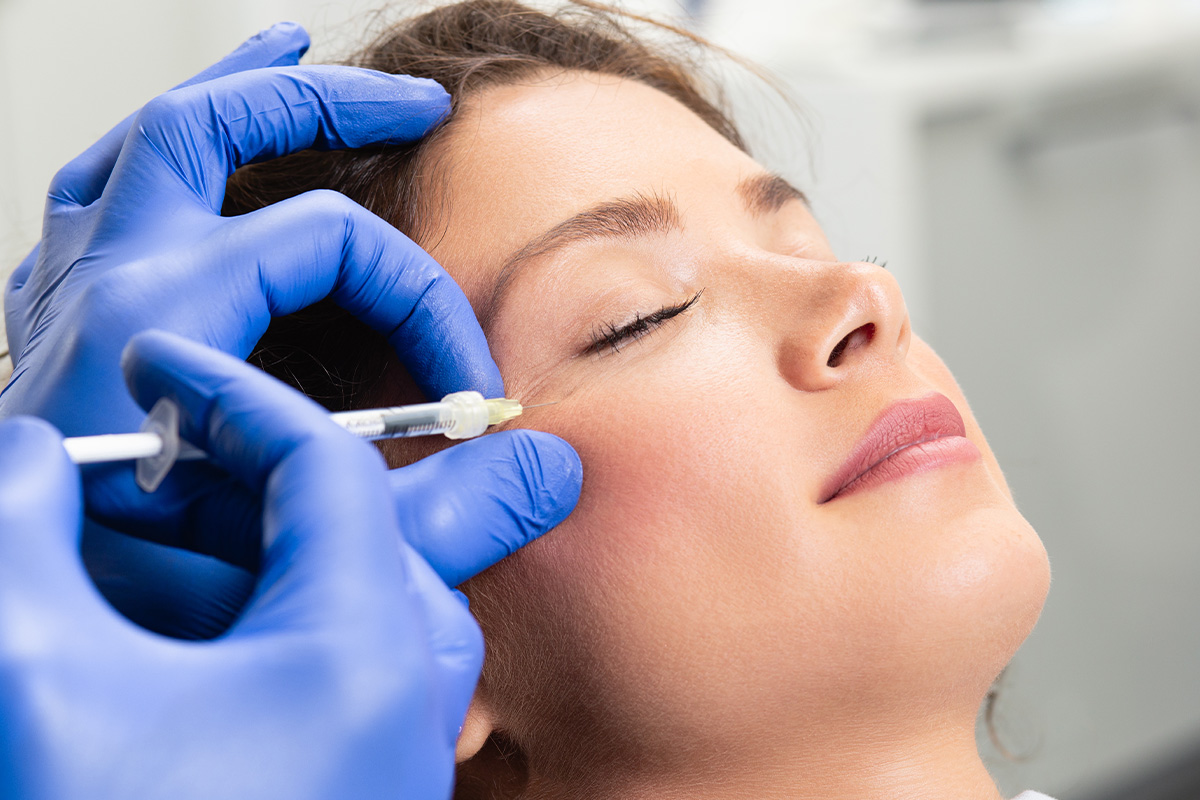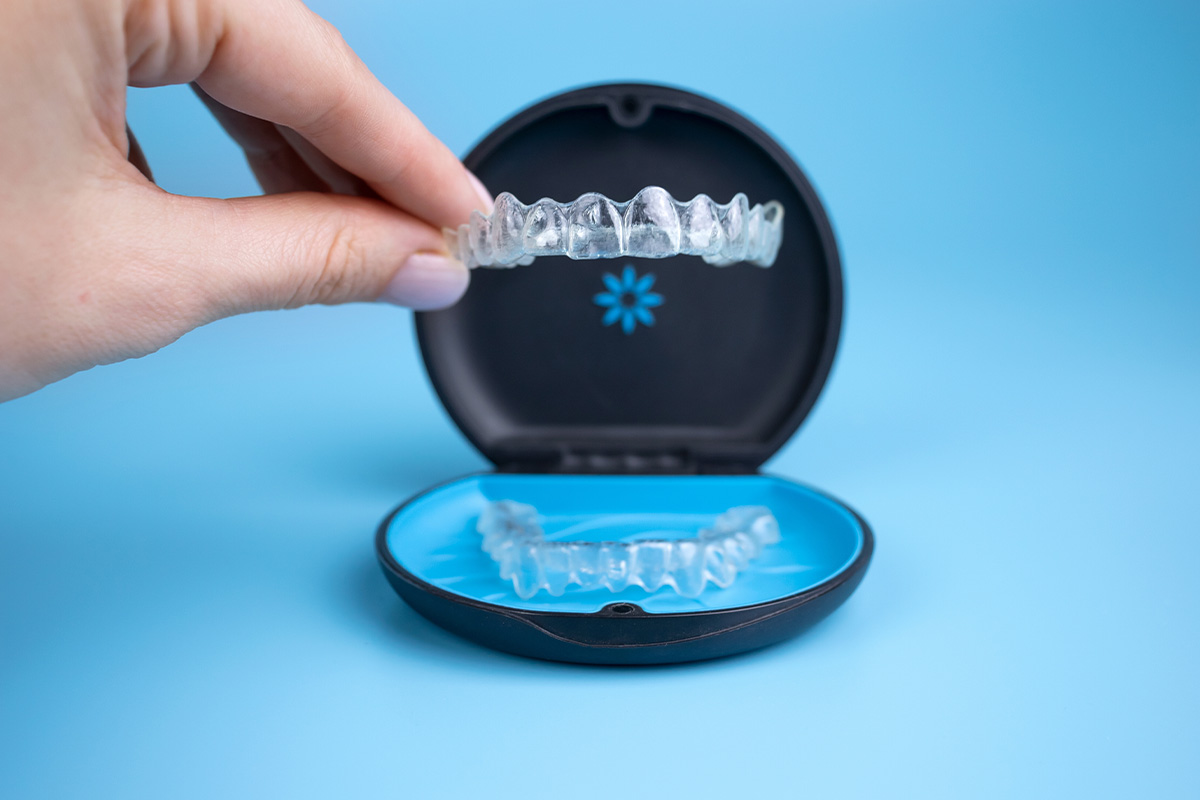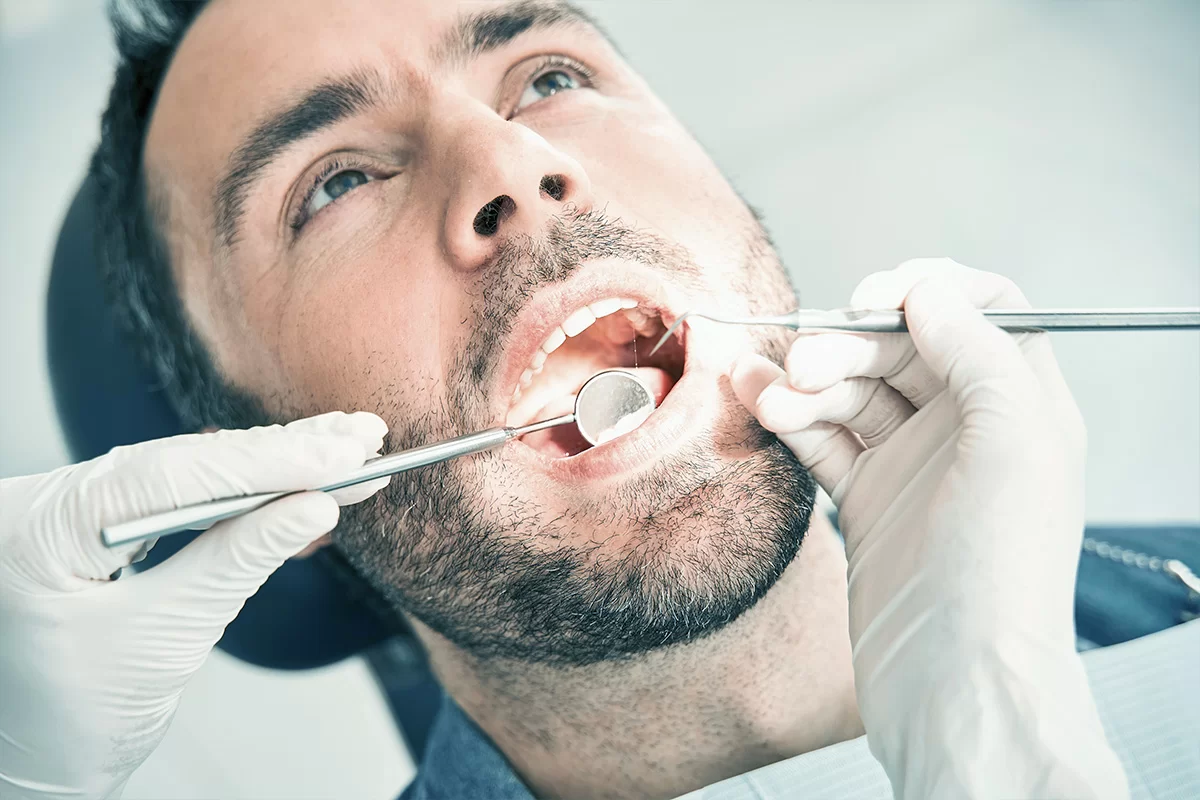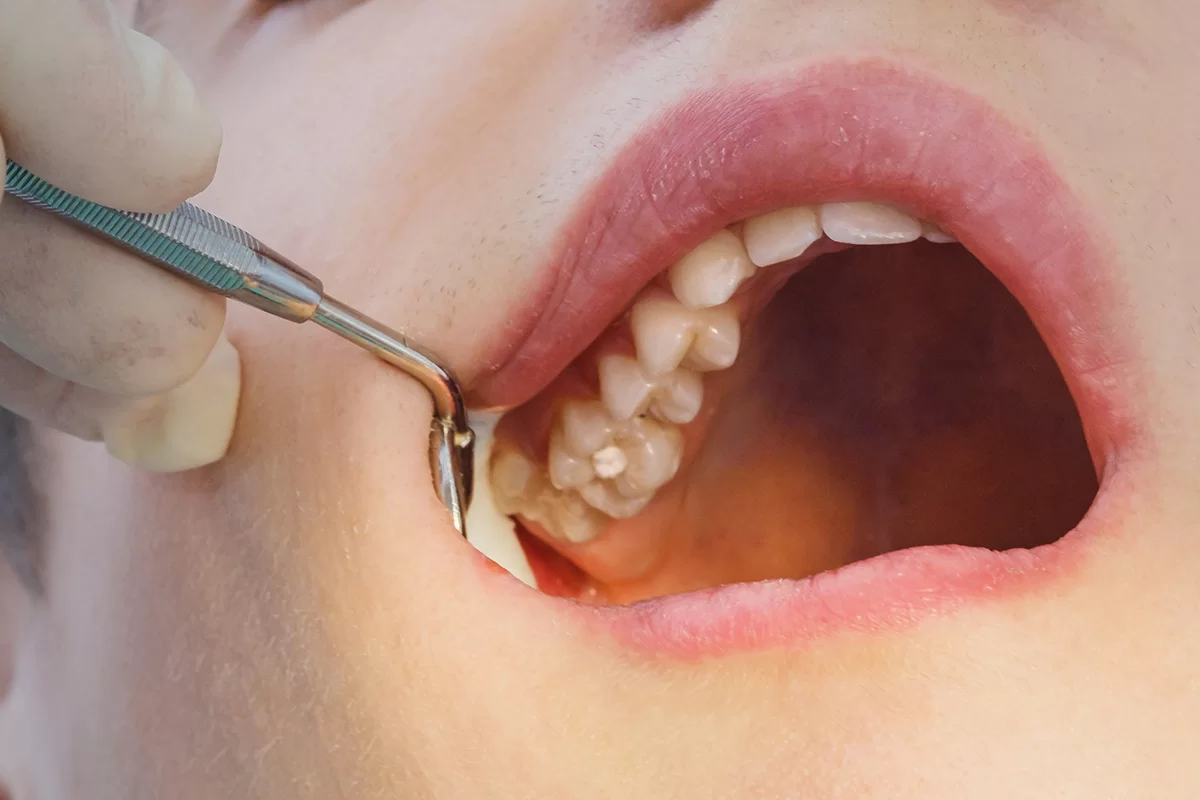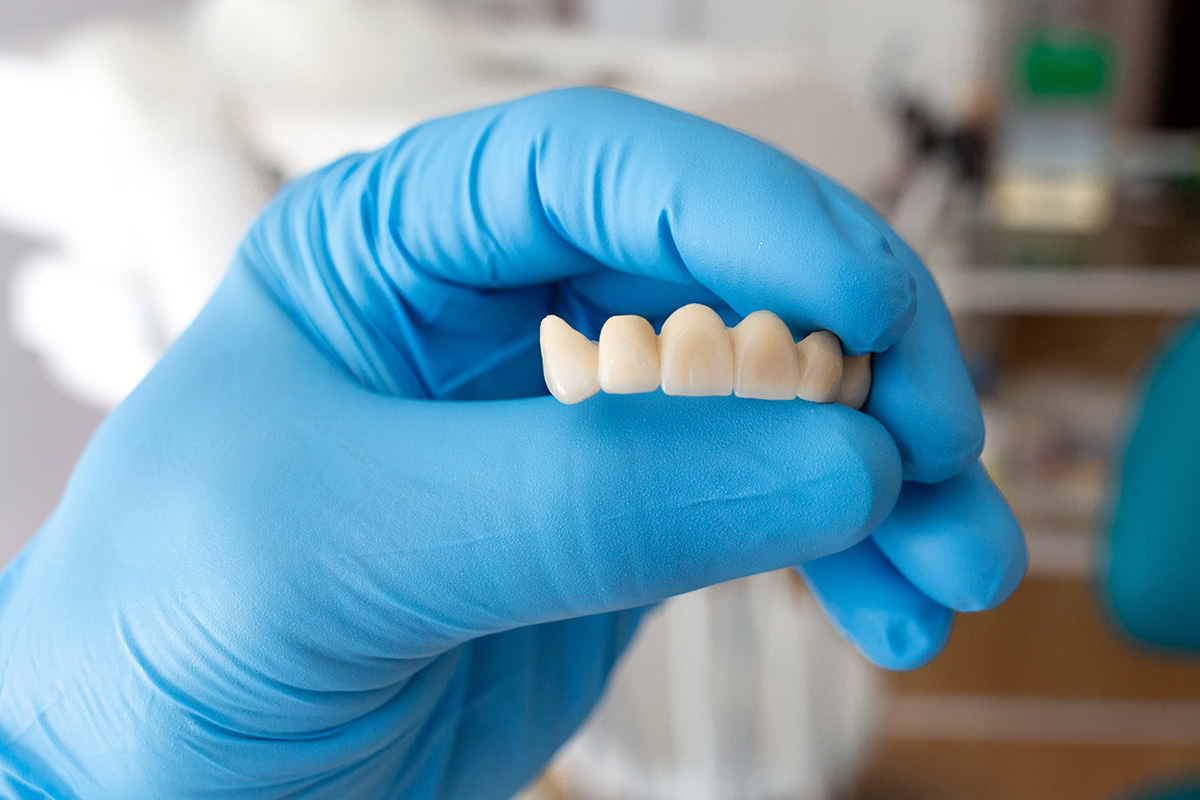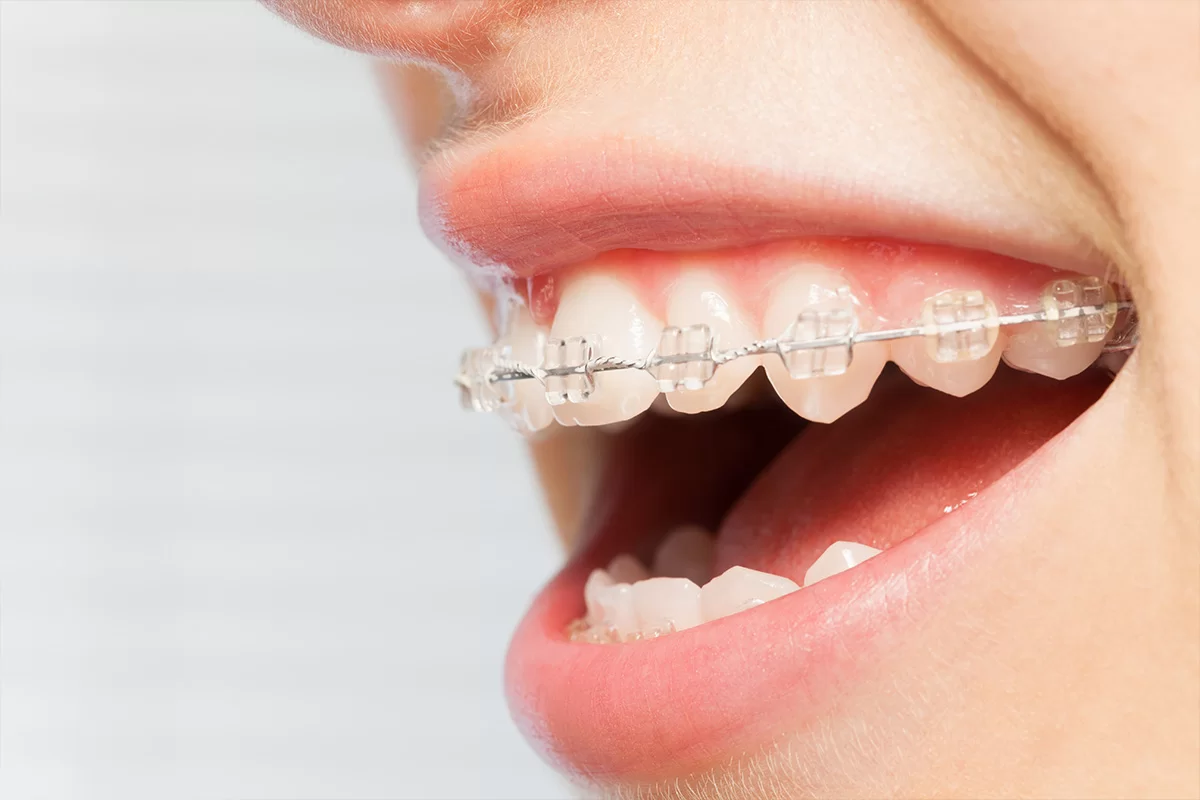Mouth Cancer Awareness Walk
News
Mouth Cancer Awareness Walk
One of our Nurses, Kayleigh and her Husband Jack recently took part in the mouth cancer 10km awareness walk in London.
They were walking to help raise some money for the Mouth Cancer Foundation.
We are very proud of Kayleigh and Jack, and if you would like to support this amazing cause please use the link below.
Share this article

You may also be interested in
Kerry’s Story: Park Street Dental Fundraises for Brain Tumour Research UK
Kerry, a brain tumour survivor, is leading a fundraising challenge at Park Street Dental to support Brain Tumour Research UK. Our team is taking on a cold water plunge to help raise awareness and funds for vital research.
Mouth Cancer Awareness Walk
One of our Nurses, Kayleigh and her Husband Jack recently took part in the mouth cancer 10km awareness walk in London.
Do your teeth stop you from smiling? Ask us about QuickStraightTeeth!
When it comes to braces, forget about the old-fashioned metal train tracks. QuickStraightTeeth™ offers a superior solution that delivers stunning results. Don't let your teeth stop you from smiling!
Newsletter Jan 24
Welcome to our monthly newsletter, where we will keep you updated with all our news and developments here at Park Street Dental.
Boutique Whitening News
Boutique Whitening is a high-quality whitening gel that offers exceptional results, with a noticeable improvement in just a few days.
Our brand new website is live
We’ve launched a brand new website that gives you all the information you need about our practice.
Facial Aesthetics
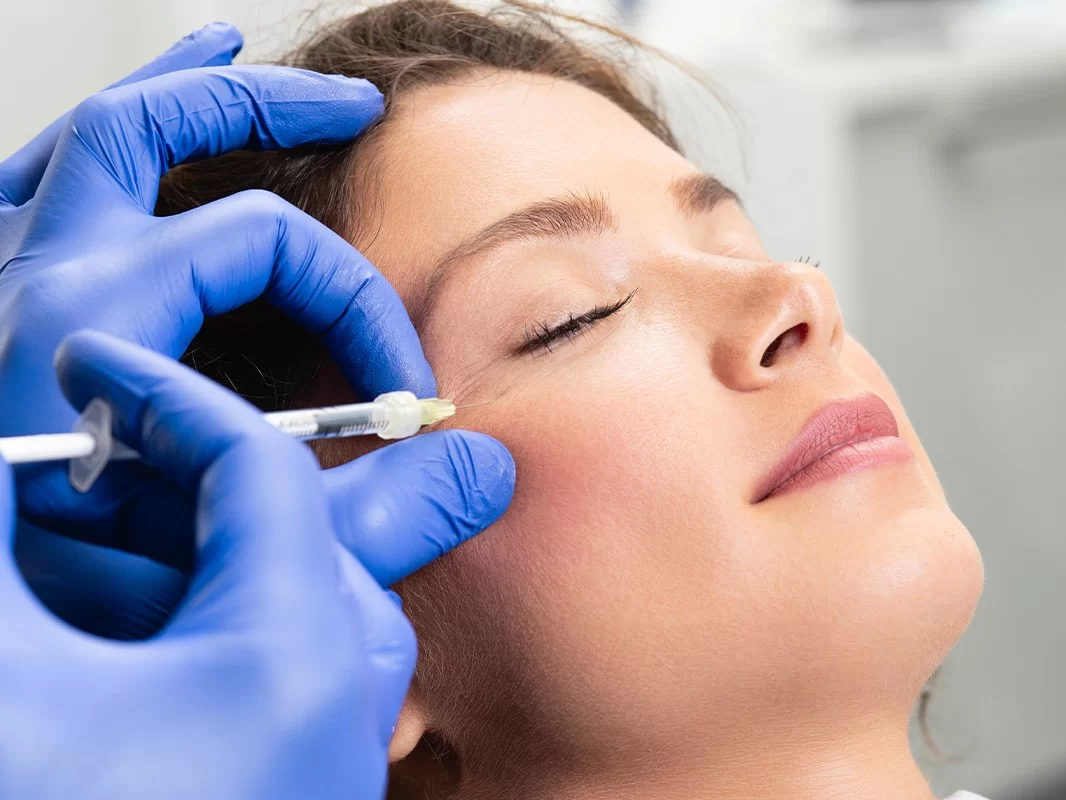
Treatments
Facial Aesthetics
Anti-wrinkle / rejuvenation treatments
Fine lines, wrinkles and loss of volume in your face and lips might leave you feeling self-conscious about ageing. With facial aesthetics treatment at Park Street Dental, you can turn back the clock and rejuvenate your skin with just a few injections.
Is Facial Aesthetics a non-surgical procedure?
Facial aesthetics is a non-surgical and minimally invasive procedure that can temporarily diminish wrinkles or restore volume.
Common treatment areas include the forehead, cheeks and lips.
We proudly offer facial aesthetics in Bridgend (Cowbridge, Maesteg, Porthcawl, Port Talbot, and the surrounding areas). The dentist may not be the obvious choice for this type of treatment, but it makes sense to do it in a safe and sterile environment.
Dentists are also very skilled with needles and spend a lot of time studying the structure of the face. This makes Park Street Dental the ideal place for your treatment.
Need some advice? Book your Facial Aesthetic Treatment consultation to speak directly with our dentists.
Why choose Facial Aesthetics?
- Makes you look younger
- Boost confidence
- Non-invasive and non-surgical
- Painless
- Instant results

Provided by our experienced and qualified clinician, Dr Flo King
Frequently Asked Questions
Facial aesthetics are cosmetic treatments designed to rejuvenate and enhance natural facial features through a non-surgical procedure. Most people choose facial aesthetics to tighten loose skin, reverse the signs of ageing, create a symmetrical look, and get a more radiant glow. Facial aesthetics aim to highlight existing facial features by rejuvenating and refreshing the skin.
Through facial aesthetics, you can soften expression lines, define features and enhance contours. By targeting areas such as the forehead, lips, cheeks, and nose that are most affected by the ageing process, facial aesthetics help to reduce the appearance of ageing. Depending on the treatment and how often it is topped up, facial aesthetics can enhance the facial profile dramatically or subtly.
Facial aesthetic treatments have the potential to boost confidence by reducing skin imperfections. Many people choose facial aesthetics to improve their self-esteem by reducing insecurities such as wrinkles and fine lines. Facial aesthetics restore a youthful appearance to improve confidence and self-esteem. All facial aesthetics treatments are non-invasive and non-surgical meaning there is a short recovery period and a reduced risk of side effects. Most treatments are painless and cause little discomfort and offer excellent, instant results.
When performed by a qualified dentist, facial aesthetics are a safe treatment that requires minimal downtime so you can continue your daily routine as normal.
Facial aesthetics are not permanent and require regular appointments to maintain the effects. Depending on the area treated, repeat treatments are required every three to 12 months. If you choose not to maintain facial aesthetic treatment, the effects will wear off and the treated area is likely to return to its original state over time.
1. Dermal Filler
Dermal filler is an injectable aesthetic treatment, commonly used to smooth out lines around the mouth, enhance the lips, store volume in the cheeks, refine the chin and improve facial symmetry. This treatment lasts around six to 12 months and is one of the most popular facial aesthetic procedures.
2. Facial Muscle Relaxation
An injectable treatment that aims to relax facial muscles to reduce the appearance of wrinkles and fine lines. Most people choose this treatment to soften forehead lines and crow’s feet, smoothen skin between the eyes and flatten wrinkles around the nose. On average, this treatment lasts around three to four months.
3. Anti-wrinkle Treatments
Anti-wrinkle treatments are a common facial aesthetic designed to combat the ageing process and restore a smooth appearance. Anti-wrinkle injections can be used to treat frown lines, high smile lines, and sagging around the neck. This treatment is quick and effective with minimal risk and provides immediate results.
Dentists are highly qualified professionals that are expertly trained to perform facial aesthetic treatments. Here are three reasons you should choose to visit the dentist for facial aesthetic treatment:
1. Dentists Have Experience
Due to the nature of their job, dentists have an in-depth understanding of the muscles, movements and nerves in the face meaning they have increased knowledge that allows them to administer injectable treatments safely. Dentists deliver anaesthetic into soft gum tissues every day, so they are provided with ample experience that qualifies them to distribute and inject aesthetics.
2. Dentists are Qualified
Dentist training requires them to study for a minimum of five years and learn the key skills required to perform facial aesthetic treatments. Clinical Dexterity, Artistry, and Core Anatomical Knowledge are subjects studied by dentists which make them some of the best-qualified facial aesthetic administrators in the industry.
3. Dentists are Safe
Dentists who perform cosmetic interventions must obey the rules presented by The General Dental Council. Cross-infection control as well as general health and safety are of paramount importance in the dental industry so you can be sure that strict cleanliness standards and patient safety measures are followed.
Park Street Dental strives to provide exemplary standards to ensure all patients receive exceptional aesthetic results. Park Street Dental has delivered patients outstanding service for over fifteen years.
For more information about facial aesthetics and to discuss which is the best treatment for you, get in touch with our friendly team today.
Our Other Dental Treatments
Facial Aesthetics
With Facial Aesthetics treatment at Park Street Dental, you can turn back the clock and rejuvenate your skin with just a few injections.
Invisalign
Invisalign treatment is the clear alternative to metal braces for kids, teens, and adults. Enjoy the freedom to live your life with an affordable alternative to braces.
Composite Bonding
Composite Bonding is one of the best ways to enhance your smile. It can fix and restore chipped, damaged or stained teeth.
Hygienist Services
We offer hygiene services including teeth cleaning, gum health assessment, EMS AIR-FLOW therapy and oral health advice.
Restorative Fillings
Restore your damaged tooth to full health with our Filling treatment. We offer silver and tooth coloured dental fillings.
Dentures
Smile big again and eat the foods you have always wanted! Dentures are a trusted and effective way to replace missing teeth.
Bridges and Crowns
Smile with confidence with our Bridges and Crowns treatment. These are fixed permanently and can last for many years.
Dentistry for Children
We provide young people with all aspects of dental care, placing an emphasis on oral hygiene and preventive treatment such as fissure sealants.
Dental Implants
Worried about living with missing teeth? Dental Implants is a great alternative to having dentures or bridges to replace missing teeth.
Teeth Whitening
Achieve a bright, white smile with our Teeth Whitening treatment. Lighten the natural colour of your teeth in a safe and effective way.
Quick Straight Teeth
Improve your smile with Quick Straight Teeth. These invisible braces are the most affordable, comfortable and effective way of straightening your teeth.
Do your teeth stop you from smiling? Ask us about QuickStraightTeeth!
News
Do your teeth stop you from smiling?
Ask us about QuickStraightTeeth!
When it comes to braces, forget about the old-fashioned metal train tracks and Ugly Betty look. QuickStraightTeeth™ offers a superior solution that delivers stunning results without compromising on aesthetics. QST braces are designed to look great, feel comfortable, and work fast.
With QuickStraightTeeth™, you have the option of tooth-coloured brackets and wires, or clear aligners that are practically invisible. You can wear them with confidence, knowing that most people won’t even notice.
By straightening your front 6 to 8 teeth, QuickStraightTeeth™ delivers rapid results that will transform your smile.
Want a fabulous smile?
At Park Street Dental we are happy to help. Book your Quick Straight Teeth consultation to speak directly with our dentists.
Share this article
Some of QST recent results
You may also be interested in
Kerry’s Story: Park Street Dental Fundraises for Brain Tumour Research UK
Kerry, a brain tumour survivor, is leading a fundraising challenge at Park Street Dental to support Brain Tumour Research UK. Our team is taking on a cold water plunge to help raise awareness and funds for vital research.
Mouth Cancer Awareness Walk
One of our Nurses, Kayleigh and her Husband Jack recently took part in the mouth cancer 10km awareness walk in London.
Do your teeth stop you from smiling? Ask us about QuickStraightTeeth!
When it comes to braces, forget about the old-fashioned metal train tracks. QuickStraightTeeth™ offers a superior solution that delivers stunning results. Don't let your teeth stop you from smiling!
Newsletter Jan 24
Welcome to our monthly newsletter, where we will keep you updated with all our news and developments here at Park Street Dental.
Boutique Whitening News
Boutique Whitening is a high-quality whitening gel that offers exceptional results, with a noticeable improvement in just a few days.
Our brand new website is live
We’ve launched a brand new website that gives you all the information you need about our practice.
Invisalign
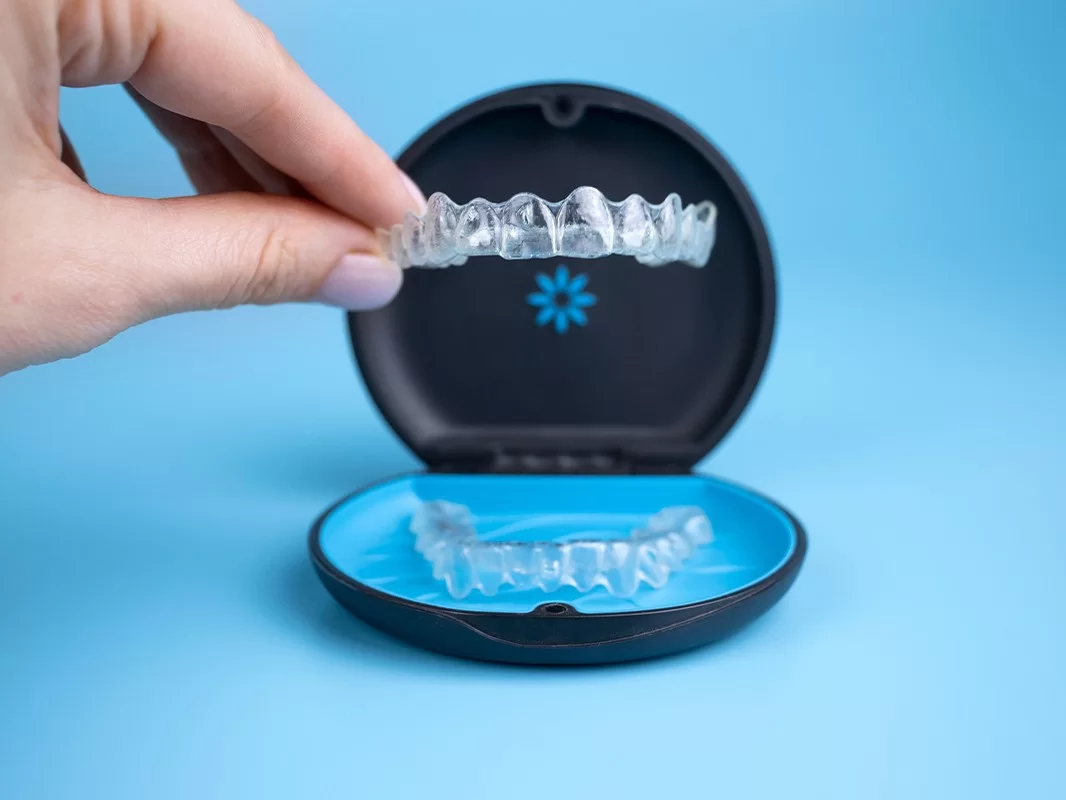
Treatments
Invisalign
What is Invisalign?
Meet the equivalent of an invisibility cloak for your teeth. Only you will know that you’re wearing an Invisalign brace so you can let it work its magic while you get on with your life.
It uses a set of clear aligners to straighten your teeth. The Invisalign aligner will correct overcrowding and gaps in your teeth and it’s removable, so it’s easier to clean and you can take it out for special occasions. The best thing about it is that you could see results in as little as 12 weeks.
How does it work?
After you’ve visited us for a consultation, we’ll take impressions of your teeth as well as a few X-rays of your dental structure. While you’re with us, we’ll also use 3D technology to show you how your teeth will look at the end of the treatment – we told you it was magic.
This is called a clincheck where you will be able to see exactly how your teeth will move into the desired positions week-by-week. Once you are happy with it, we can proceed with your Invisalign treatment at Park Street Dental.
We’ll then send the impressions of your teeth to the Invisalign technicians who make the clear aligners. Each aligner will be worn for one-two weeks or until your teeth have moved into the position of the aligner. When this happens, it’s time for a new one so we will fit a new aligner and repeat the process until your teeth are perfectly straight.
You’ll wear the aligners for around 22 hours a day and throughout the treatment, we’ll do our very best to make sure that you’re as comfortable as possible while you get used to wearing them.
Need some advice? Book your Invisalign consultation at Park Street Dental to speak directly with our cosmetic dentists.
A £35 refundable deposit will be required to secure the appointment.

Key Benefits of the Invisalign Treatment
The Invisalign clear aligners are almost invisible when you smile. You really must look closely to see them. They are one of the most discreet teeth straightening treatments currently available to adults.
The Invisalign treatment has now straightened the smiles of over 11million people in the world. They are the leaders in the clear aligner field and have the most advanced technology available to create your dream straight smile. Top notch stuff using 3D technology!
The Invisalign clear aligners treatment we provide here at Park Street Dental, Bridgend, are unlike some other ‘at-home’ aligner options and are only available to practices and dentists that have been trained to do it. This means that when you decide to have your teeth straightened with Invisalign, your journey will be followed by a dentist who will be able to monitor your progress.
The beauty of having clear aligners compared to fixed braces is that they can fit around your lifestyle as they can be removed. This means they can be taken out for special occasions, but you must remember to put them back in. This can be a benefit to some people and a detriment to others as it does require willpower to keep wearing them for the required 22hrs a day to avoid delays in the treatment itself.
For some people a fixed brace system like Quick Straight teeth, may be a better option. The same aligners can then be used to whiten your teeth at the end of the treatment if required.
Because of the technology involved, it is one of the fastest clear aligner treatments. This, of course, will depend on a few factors including how fast your teeth actually move. The beauty of Invisalign is that your dentist can place some tooth-coloured attachments on your teeth which help the clear aligners move the teeth into desired positions faster.
As if the other benefits were not enough, one of the best things is that with the amazing 3D technology available, you can see the end result, even before starting it. Not only will you see the before and after, but you will also see how the transformation happens week-by-week.
This is possible through a scan which is then sent off to Invisalign to produce a 3D digital model (a Clincheck) of the transformation where you can see the movement of the teeth at every stage. You will discuss this Clincheck with your dentist before deciding whether to proceed with the treatment here at Park Street Dental or not.
Our Other Dental Treatments
Facial Aesthetics
With Facial Aesthetics treatment at Park Street Dental, you can turn back the clock and rejuvenate your skin with just a few injections.
Invisalign
Invisalign treatment is the clear alternative to metal braces for kids, teens, and adults. Enjoy the freedom to live your life with an affordable alternative to braces.
Composite Bonding
Composite Bonding is one of the best ways to enhance your smile. It can fix and restore chipped, damaged or stained teeth.
Hygienist Services
We offer hygiene services including teeth cleaning, gum health assessment, EMS AIR-FLOW therapy and oral health advice.
Restorative Fillings
Restore your damaged tooth to full health with our Filling treatment. We offer silver and tooth coloured dental fillings.
Dentures
Smile big again and eat the foods you have always wanted! Dentures are a trusted and effective way to replace missing teeth.
Bridges and Crowns
Smile with confidence with our Bridges and Crowns treatment. These are fixed permanently and can last for many years.
Dentistry for Children
We provide young people with all aspects of dental care, placing an emphasis on oral hygiene and preventive treatment such as fissure sealants.
Dental Implants
Worried about living with missing teeth? Dental Implants is a great alternative to having dentures or bridges to replace missing teeth.
Teeth Whitening
Achieve a bright, white smile with our Teeth Whitening treatment. Lighten the natural colour of your teeth in a safe and effective way.
Quick Straight Teeth
Improve your smile with Quick Straight Teeth. These invisible braces are the most affordable, comfortable and effective way of straightening your teeth.
Composite Bonding

Treatments
Composite Bonding
Get ready for a whiter, healthier smile with Composite Bonding!
Did you know that composite bonding is one of the most popular cosmetic dentistry procedures? Composite bonding, also known as teeth bonding or composite veneers, can be used to cover up stains or imperfections, fix chips and cracks, or just improve the appearance of your smile. If you’re interested in learning more about composite bonding, then keep reading!
What is Composite Bonding?
Composite bonding is a cosmetic procedure growing in popularity due to its versatile and fantastic results.
Composite bonding works with the use of a material called ‘composite’ which is added to the teeth to repair chips, cracks and mis-shaped teeth. When thinking about taking advantage of this treatment, you have two options. Firstly, composite bonding can be used to fix individual teeth and smooth over small areas of aesthetic displeasure. However, we also offer a truly smile changing treatment in composite veneers here at Park Street Dental.
Composite veneers work in a similar way to dental veneers in that the whole tooth is covered over. However, in this case we would use the composite material to cover the tooth, creating a whole new Hollywood smile. Due to the nature of the material, composite veneers are a less expensive way of achieving that smile than the alternative of porcelain veneers.
Need some advice? Book your Composite Bonding consultation at Park Street Dental to speak directly with our cosmetic dentists.
Why choose Composite Bonding?
- Long-lasting effects
- Improving your smile helps you feel more confident
- Repair dental damage
Frequently Asked Questions
No! Composite bonding is a comfortable procedure that doesn’t require local anaesthetic (injections). This is because it is usually an addition to your natural teeth, therefore we do not usually need to trim or polish your teeth during the procedure.
Cosmetic bonding can take as little as thirty minutes and up to a few hours depending on the number of teeth being bonded and what your desired result is.
Unless you are booking an emergency appointment at Park Street Dental to treat a single tooth, we usually require an initial assessment and planning appointment. This allows us to accurately assess your suitability for composite bonding as well as plan how to make your composite bonding look the best and lasts the longest.
Composite bonding usually lasts around five years. To get the most out of your composite bonding we recommend regular hygiene appointments, ideally every six months, and re-polishing of the composite every one to two years.
Yes, composite bonding can chip and stain, but it can also be repaired. To reduce the chances of the composite staining or chipping we advise avoiding excessive amounts of highly coloured foods (tea, coffee, red wine, curries etc) and avoiding biting hard objects on the edges of your teeth (pens, fingernails, hard sweets, etc.)
If you are looking for longer-term solutions for your smile you may want to consider other options we provide at Park Street Dental like porcelain veneers or orthodontic treatment, like Invisalign or Quick Straight Teeth as this may be a better option for you. This can be discussed at your cosmetic consultation.
Composite bonding can cost from £250.00 per tooth. Although the Avant Garde injection moulding technique for multiple upper and lower composite veneers is around £350, a more accurate cost will be given once the lab confirms.
Composite bonding is suitable for most patients. Composite can be used to repair worn or chipped teeth, change the colour of teeth close spaces between teeth and change the shape of teeth.
After having your smile evaluation, we will be able to recommend the best long-term solution for your teeth as well as discuss the alternative available options.
At Park Street Dental Practice, we believe that every person should be allowed to take control of their smile. Whether your teeth are crooked or stained we will offer you the best solutions to help you achieve the smile of your dreams. This means that occasionally we won’t accept patients for composite bonding treatment because of the position of teeth or because of the way the top and bottom teeth touch when you bite. However, we will always provide you with alternative suggestions and options so you can still get the smile you deserve!
Yes! If you are planning to use composite to enhance the appearance of multiple teeth, then we will often have an appointment for you to trial the way your smile looks before committing to the treatment. We call this the trial smile phase. This is a great way for you to physically see how the teeth will look when your treatment is complete. The great thing about this is that it also gives us the opportunity to adjust and the result before proceeding with your final tooth bonding.
To do this we will take a mould or scan off your teeth and take a few pictures of your smile. After listening to all your concerns and understanding what you would like your perfect smile to look like we will design your smile here at Park Street Dental, Bridgend.
Yes! Composite bonding can be removed, although this is a delicate process and potentially will result in some loss of your natural tooth. The good news is that when the composite is polished back carefully it is unlikely to cause any serious damage or issues to the teeth. Our dentists in Bridgend regularly use the best equipment and methods to effectively remove composite safely.
Our Other Dental Treatments
Facial Aesthetics
With Facial Aesthetics treatment at Park Street Dental, you can turn back the clock and rejuvenate your skin with just a few injections.
Invisalign
Invisalign treatment is the clear alternative to metal braces for kids, teens, and adults. Enjoy the freedom to live your life with an affordable alternative to braces.
Composite Bonding
Composite Bonding is one of the best ways to enhance your smile. It can fix and restore chipped, damaged or stained teeth.
Hygienist Services
We offer hygiene services including teeth cleaning, gum health assessment, EMS AIR-FLOW therapy and oral health advice.
Restorative Fillings
Restore your damaged tooth to full health with our Filling treatment. We offer silver and tooth coloured dental fillings.
Dentures
Smile big again and eat the foods you have always wanted! Dentures are a trusted and effective way to replace missing teeth.
Bridges and Crowns
Smile with confidence with our Bridges and Crowns treatment. These are fixed permanently and can last for many years.
Dentistry for Children
We provide young people with all aspects of dental care, placing an emphasis on oral hygiene and preventive treatment such as fissure sealants.
Dental Implants
Worried about living with missing teeth? Dental Implants is a great alternative to having dentures or bridges to replace missing teeth.
Teeth Whitening
Achieve a bright, white smile with our Teeth Whitening treatment. Lighten the natural colour of your teeth in a safe and effective way.
Quick Straight Teeth
Improve your smile with Quick Straight Teeth. These invisible braces are the most affordable, comfortable and effective way of straightening your teeth.
Hygienist Services
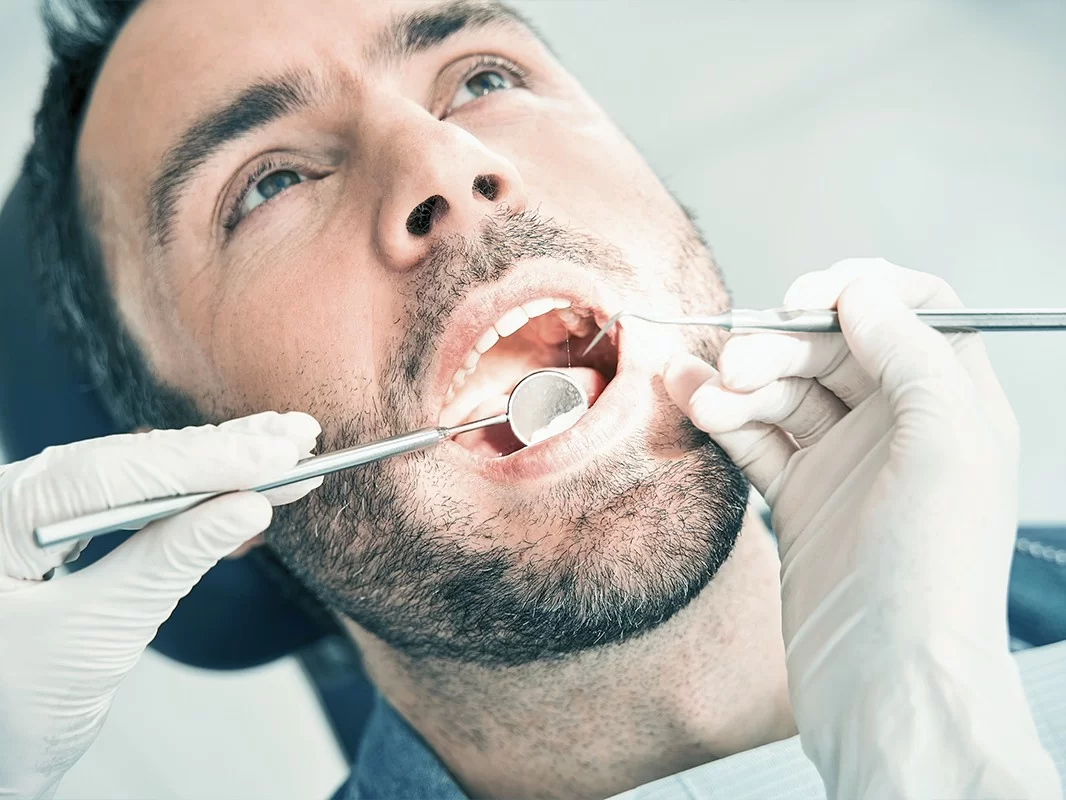
Treatments
Hygienist Services
A visit to the dental hygienist is a critical part of caring for your smile.
Prevention of dental decay is always better than treatment, it all starts with good dental hygiene.
What is a Dental Hygienist?
Your dental hygienist provides you with vital preventative care and helping you stay healthy.
A dental hygienist will have spent 2 or more years at university studying dentistry, with a specific interest in Oral Health, Prevention and the Treatment of Gum Disease. They can also advise you on the basics of a lifestyle that supports good dental health.
Need some advice? Book your consultation with our Dental Hygienist at Park Street Dental today.
Why choose Hygienist Services?
- Avoid the dentist
- Gum health
- Banish bad breath
- Improve your smile
Frequently Asked Questions
EDUCATION is the number one role of a dental hygienist.
The Hygienist will be able to inform you of your specific oral health issues and tailor the treatment to match your individual needs.
Anyone can have their teeth professionally cleaned regularly, but without the valuable information the hygienist imparts and the patient taking steps to follow this advice nothing will ultimately change.
A hygienist will ASSESS GUM HEALTH by gently probing your gums and informing you of the results. These readings will be taken regularly and the hygienist will inform you of any changes.
TREATMENT OF GINGIVITIS: Gingivitis is inflammation of the gums, caused by plaque bacteria left on the teeth and gums.
TREATMENT OF PERIODONTAL DISEASE: When the bacteria (plaque) has reached the ligament that holds the tooth in place compromising the stability of the tooth or teeth.
The dentist can do this work but dentists are also highly skilled in other areas of dentistry. A hygienist is specifically trained for this work. By using a team work approach we feel this frees up your dentist to be able to spend more time with you when needed.
Hygiene treatment hasn’t always had the best reputation for comfort, cold water… scrapping teeth…. horrible noises, all things we think of when we think of dental hygiene.
Well, hopefully, no more, here at Park Street Dental we have invested in the EMS Airflow System. This is an innovative device that projects a controlled stream of air, medicinal fine powder and water that is brought up to body temperature onto teeth, gums and hard-to-reach areas to disrupt the biofilm that ultimately causes gum disease. The EMS delivers the most technologically advanced and finest of powders at a controlled rate so is a minimally invasive and comfortable treatment
Our Other Dental Treatments
Facial Aesthetics
With Facial Aesthetics treatment at Park Street Dental, you can turn back the clock and rejuvenate your skin with just a few injections.
Invisalign
Invisalign treatment is the clear alternative to metal braces for kids, teens, and adults. Enjoy the freedom to live your life with an affordable alternative to braces.
Composite Bonding
Composite Bonding is one of the best ways to enhance your smile. It can fix and restore chipped, damaged or stained teeth.
Hygienist Services
We offer hygiene services including teeth cleaning, gum health assessment, EMS AIR-FLOW therapy and oral health advice.
Restorative Fillings
Restore your damaged tooth to full health with our Filling treatment. We offer silver and tooth coloured dental fillings.
Dentures
Smile big again and eat the foods you have always wanted! Dentures are a trusted and effective way to replace missing teeth.
Bridges and Crowns
Smile with confidence with our Bridges and Crowns treatment. These are fixed permanently and can last for many years.
Dentistry for Children
We provide young people with all aspects of dental care, placing an emphasis on oral hygiene and preventive treatment such as fissure sealants.
Dental Implants
Worried about living with missing teeth? Dental Implants is a great alternative to having dentures or bridges to replace missing teeth.
Teeth Whitening
Achieve a bright, white smile with our Teeth Whitening treatment. Lighten the natural colour of your teeth in a safe and effective way.
Quick Straight Teeth
Improve your smile with Quick Straight Teeth. These invisible braces are the most affordable, comfortable and effective way of straightening your teeth.
Restorative Fillings
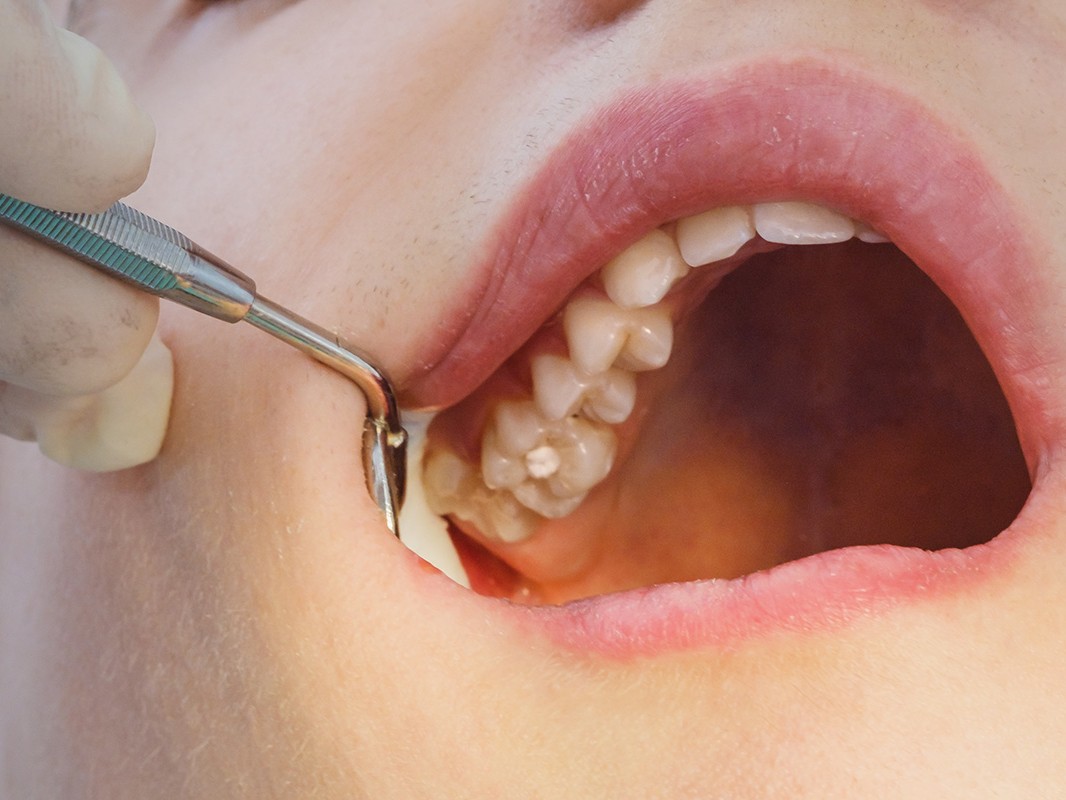
Treatments
Restorative Fillings
Restore your damaged tooth to full health.
A filling is a treatment for tooth damaged by decay, restoring it back to its normal function and shape while preventing further decay.
What are amalgam fillings?
Amalgam or silver fillings are the metal coloured fillings that many people have.
Amalgam was the traditional material used for fillings for many years however they do contain small amounts of mercury.
Need some advice? Book your Restorative Fillings consultation at Park Street Dental to speak directly with our dentists.
Why choose Restorative Fillings?
- Stop the cavity from growing
- Protect your teeth from decay
- Strengthen fractured teeth
Frequently Asked Questions
Most people have fillings of one sort or another in their mouths. Nowadays fillings are not only functional, but can be natural looking as well. Many people don’t want silver fillings that show when they laugh or smile because they are more conscious about the way they look.
White fillings have always been considered less long-lasting than silver amalgam fillings. But there are now new materials available with properties comparable to silver amalgam, and these are proving to be very successful. The life expectancy of a white filling can depend greatly on where it is in your mouth and how heavily your teeth come together when you bite. Your dentist can advise you on the life expectancy of your fillings.
It is usually best to change fillings only when your dentist decides that an old filling needs replacing. If so you can ask to have it replaced in a tooth-coloured material.
This can vary, but they are mainly made of glass particles, synthetic resin and a setting ingredient. Your dentist should be able to give you more information about the particular material that they use.
Our Other Dental Treatments
Facial Aesthetics
With Facial Aesthetics treatment at Park Street Dental, you can turn back the clock and rejuvenate your skin with just a few injections.
Invisalign
Invisalign treatment is the clear alternative to metal braces for kids, teens, and adults. Enjoy the freedom to live your life with an affordable alternative to braces.
Composite Bonding
Composite Bonding is one of the best ways to enhance your smile. It can fix and restore chipped, damaged or stained teeth.
Hygienist Services
We offer hygiene services including teeth cleaning, gum health assessment, EMS AIR-FLOW therapy and oral health advice.
Restorative Fillings
Restore your damaged tooth to full health with our Filling treatment. We offer silver and tooth coloured dental fillings.
Dentures
Smile big again and eat the foods you have always wanted! Dentures are a trusted and effective way to replace missing teeth.
Bridges and Crowns
Smile with confidence with our Bridges and Crowns treatment. These are fixed permanently and can last for many years.
Dentistry for Children
We provide young people with all aspects of dental care, placing an emphasis on oral hygiene and preventive treatment such as fissure sealants.
Dental Implants
Worried about living with missing teeth? Dental Implants is a great alternative to having dentures or bridges to replace missing teeth.
Teeth Whitening
Achieve a bright, white smile with our Teeth Whitening treatment. Lighten the natural colour of your teeth in a safe and effective way.
Quick Straight Teeth
Improve your smile with Quick Straight Teeth. These invisible braces are the most affordable, comfortable and effective way of straightening your teeth.
Dentures
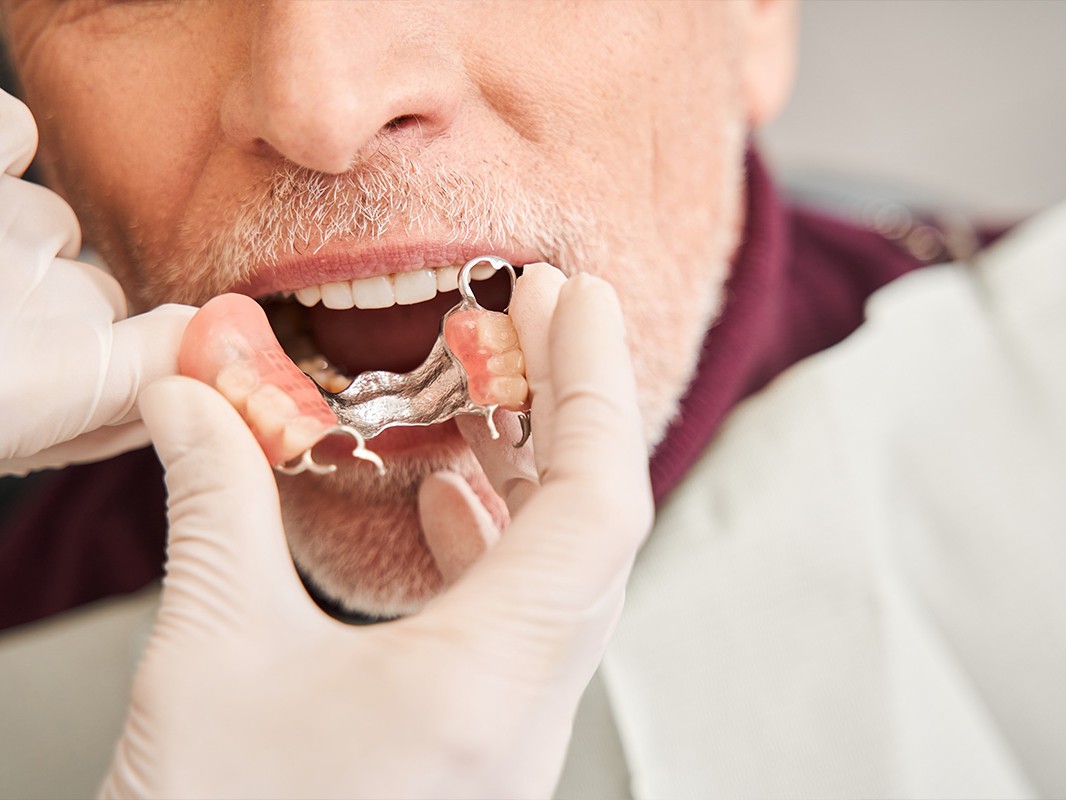
Treatments
Dentures
Dentures are a trusted and effective way to replace missing teeth.
Whether you have worn dentures for some time or are about to wear them for the first time, you probably have many questions. Dentures in one form or another have been around for many years. The earliest recorded use of dentures was more than 2000 years ago. Today, dentures are better quality and more comfortable than ever before.
Why bother with dentures?
Replacing lost or missing teeth has substantial benefits for your health and appearance.
A complete or full denture replaces the natural teeth and provides support for cheeks and lips. Without this support, sagging facial muscles can make a person appear older and reduce their ability to eat and speak.
Need some advice? Book your Dentures Treatment consultation at Park Street Dental to speak directly with our dentists.
Why choose Dentures?
- Improve speech function
- Comfort
- Natural look
- Enjoy eating your favourite foods again
- Easy to clean
- Makes you look younger
Frequently Asked Questions
- NHS Acrylic
- Private Superior Acrylic
- Cobolt Chrome Metal Denture
- Flexi Denture (Valplast)
A denture is an appliance which is worn to replace lost or missing teeth to enable you to enjoy a healthy diet and smile with confidence. A complete or full denture is one that replaces all of the natural teeth in either the upper or lower jaws. A partial denture fills in the spaces created by lost or missing teeth and is attached to your natural teeth with metal clasps or devices called precision attachments.
The base of a denture is called a plate and can be made of either acrylic (plastic) or metal. The teeth are normally made of acrylic and can be made to match your natural teeth. This is especially important in the case of partial dentures.
Dentures can be made to closely resemble your natural teeth so that little change in appearance will be noticeable. Modern dentures may even improve the look of your smile and help fill out the appearance of your face.
Eating will take a little practice. Start with soft foods cut into small pieces. Chew slowly using both sides of your mouth at the same time to prevent the denture from moving. As you become more used to your denture, add other foods until you return to your normal healthy diet.
Pronouncing certain words may require practice. Reading out loud and repeating difficult words will help. Over time you will adjust and get used to it, so don’t worry! If you find that your dentures occasionally slip when you laugh, cough or smile, reposition the denture by gently biting down and swallowing. If this continues consult your dentist.
This is quite a common worry, but the fact is that your teeth have nothing to do with your sense of taste. Your taste buds are mainly on your tongue and they will still be there so eventually everything will not taste too different.
However, at first food may not taste the same, as your dentures will interfere with your taste buds while your mouth adjusts to the feel of the denture. Your ability to sense hot food and drink may also be affected, so for a while it is a good idea to avoid very hot food and drinks, as you may burn yourself.
During the first few days, you may be advised to wear them for most of the time, including while you are asleep. This will allow you to adjust to your new dentures and let them settle in.
After an initial period of adjustment your dentist may advise that you remove them before going to bed. This allows your gums to rest and helps promote oral health. If you decide to keep them in overnight, it is important that you clean them thoroughly before you go to bed, just as you would natural teeth.
Even with full dentures, you still need to take good care of your mouth. Every morning and evening, brush your gums, tongue and palate (roof of your mouth) with a soft -bristled brush.
This removes plaque and stimulates circulation in the mouth. It is vitally important that partial denture wearers brush their teeth thoroughly every day to prevent tooth decay and gum disease that can lead to further teeth being lost.
It is advisable you take your dentures out in the night before bed to let your gums breath and avoid any bacterial infections, if it is difficult taking them out in the night then we advise to take out for a couple of hours during the day.
We advise you do not use any toothpaste on the dentures as toothpaste is very abrasive and can cause small scratches on the dentures and can lead to fungal infections, we advise to use a denture cream or fragrant free soap.
Conventional dentures are made and inserted after teeth have been removed and the tissues have healed. Healing may take several months.
Immediate Dentures are inserted immediately after teeth have been removed. To do this, the dentist takes measurements and impressions of your mouth during a preliminary visit An advantage of Immediate Dentures is that the wearer does not have to be without teeth during the healing period. However, bone and gums can shrink over time, especially during the first six months after teeth have been removed. When gums shrink, Immediate Dentures may require relining or even replacing to fit properly.
New dentures may feel awkward or even uncomfortable for a few weeks until you become accustomed to them. The dentures may feel loose while the muscles of your cheek and tongue learn to keep them in place.
Should this continue, consult your dentist. It is not unusual to experience minor irritation or soreness during this period. You may also find that saliva flow temporarily increases. As your mouth becomes accustomed to the dentures, these problems should diminish.
If any problems persist, particularly irritation or soreness, be sure to consult your dentist as soon as possible and not wait for your regular check-up. Do not take your dentures out though, leave them in, that way the dentist will be able to see where it is sore and sort the problem out quicker.
Dentures are very delicate and may break if dropped. When cleaning dentures it is recommended that you do so over a folded towel or sink of water. When you are not wearing your dentures, they should be stored in a container containing enough water to cover them.
Like natural teeth, dentures must be brushed daily to remove food debris and plaque. Brushing helps prevent dentures becoming stained and helps your mouth stay healthy. There are special denture cleaning brushes available but a soft bristled toothbrush can also be used.
Avoid using hard-bristled brushes, which can cause damage The use of an effervescent denture cleaner will help remove stubborn stains and leave your denture feeling fresher.
Yes they can. After considerable use, dentures can become slightly dull and rough. However, if you take them back to your dentist or hygienist, they can be re-polished and restored to their original appearance.
Over a period of time, dentures will need to be relined or re-made due to normal wear or a change in the shape of your mouth. Bone and gum ridges can recede or shrink causing jaws to align differently.
Loose dentures can cause health problems, including sores and infections not to mention discomfort. A loose or ill-fitting denture can also make eating and speaking more difficult. It is important to replace worn or poorly fitting dentures before they cause problems.
Regular dental check-ups and having your teeth professionally cleaned are vital for maintaining healthy teeth and gums, most dentists recommend that under normal circumstances this should be done every 6 months.
Full denture wearers should consult their dentist as to frequency of visits With regular professional care, a positive attitude and persistence, you can become one of the millions of people who wear their dentures with a smile.
Our Other Dental Treatments
Facial Aesthetics
With Facial Aesthetics treatment at Park Street Dental, you can turn back the clock and rejuvenate your skin with just a few injections.
Invisalign
Invisalign treatment is the clear alternative to metal braces for kids, teens, and adults. Enjoy the freedom to live your life with an affordable alternative to braces.
Composite Bonding
Composite Bonding is one of the best ways to enhance your smile. It can fix and restore chipped, damaged or stained teeth.
Hygienist Services
We offer hygiene services including teeth cleaning, gum health assessment, EMS AIR-FLOW therapy and oral health advice.
Restorative Fillings
Restore your damaged tooth to full health with our Filling treatment. We offer silver and tooth coloured dental fillings.
Dentures
Smile big again and eat the foods you have always wanted! Dentures are a trusted and effective way to replace missing teeth.
Bridges and Crowns
Smile with confidence with our Bridges and Crowns treatment. These are fixed permanently and can last for many years.
Dentistry for Children
We provide young people with all aspects of dental care, placing an emphasis on oral hygiene and preventive treatment such as fissure sealants.
Dental Implants
Worried about living with missing teeth? Dental Implants is a great alternative to having dentures or bridges to replace missing teeth.
Teeth Whitening
Achieve a bright, white smile with our Teeth Whitening treatment. Lighten the natural colour of your teeth in a safe and effective way.
Quick Straight Teeth
Improve your smile with Quick Straight Teeth. These invisible braces are the most affordable, comfortable and effective way of straightening your teeth.
Bridges and Crowns
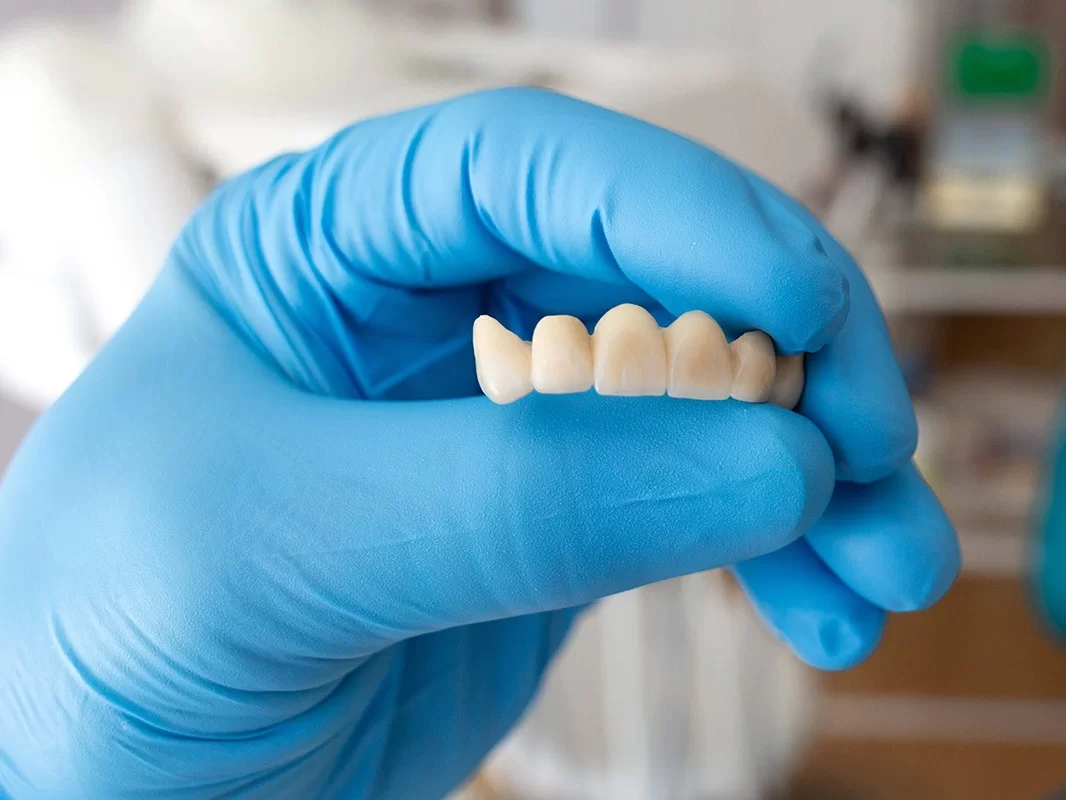
Treatments
Bridges and Crowns
Restore your smile and the function of your teeth.
Bridges and Crowns are fixed prosthetic devices. Unlike removable devices such as dentures, which you can take out and clean daily, bridges and crowns are fixed permanently in the mouth and can last for many years.
Why should I replace any missing teeth?
Your appearance is one reason.
Another is that the gap left by a missing tooth can mean greater strain on the teeth at either side. A gap can also mean your ‘bite’ is affected, because the teeth next to the space can lean into the gap and alter the way the upper and lower teeth bite together. This can then lead to food getting packed into the gap, which causes both decay and gum disease.
Need some advice? Book your Bridges and Crowns consultation at Park Street Dental to speak directly with our dentists.
Why choose Bridges and Crowns?
- Regain your confidence by improving your teeth aesthetics
- Reduce and gradually eliminate sensitivity and pain
- Improve the bite and chewing efficiency
- Prevent adjacent teeth from rotating and shifting
Bridges FAQ
This depends on the number of teeth missing and on where they are in the mouth. The condition of the other teeth also affects the decision.
There are two main ways to replace the missing teeth. The first is with a removable false tooth or teeth – a partial denture. The second is with a fixed bridge. A bridge is usually used where there are fewer teeth to replace, or when the missing teeth are only on one side of the mouth.
Yes, if you have enough strong teeth with good bone support. Your dentist will help you decide the best way of replacing your missing teeth within your budget.
Bridges are usually made of a precious metal base. If the bridge will show, porcelain is then bonded to the base. Sometimes, there are other non-precious metals used in the base to reduce the cost.
You need to clean your bridge every day, to prevent problems such as bad breath and gum disease. You also have to clean under the false tooth every day. Your dentist or hygienist will show you how to use a bridge needle or special floss, as a normal toothbrush cannot reach.
There are other methods, such as using a combination of crowns and partial dentures that can keep the retaining clips out of sight.
These are quite specialised dentures, so you should ask your dentist about them. You can also have teeth implanted, ask your dentist for more information.
Remember that it’s as important to care for your remaining teeth as it is to replace the missing ones.
Yes, there are different types of bridge which use different fixing methods. Your dentist will choose the most effective and conservative bridge for your personal situation.
Crowns FAQ
A crown is a tooth-shaped cover placed over a tooth that is badly damaged or decayed. Many people call it a cap.
Crowns may be placed for several reasons. Usually the tooth has been broken or severely damaged by decay. As a result, a filling can’t replace enough of the tooth or make the tooth strong enough. A crown may hold together parts of a cracked tooth. It also can be used to hold a bridge in place. Crowns can be used to improve appearance as well. They may be placed to cover misshapen or badly discoloured teeth.
Crowns can be made ahead of time (prefabricated) or made to order in a laboratory. Prefabricated crowns are made of plastic or stainless steel. They can be used on a temporary basis until a permanent crown is made.
- All metal
- Zirconia
- Porcelain fused to metal (PFM)
- Porcelain fused to zirconia
- All ceramic
Metals include gold alloy, other alloys (palladium) or a base-metal alloy (nickel or chromium). The all-metal or PFM crowns are stronger and are better choices for back teeth than ceramic crowns. PFM and all-ceramic crowns are the same colour as your natural teeth. They look just like normal teeth.
All crowns have advantages and disadvantages. Which type is best for you will be determined in part by your occlusion (how your teeth meet) and whether you grind your teeth. The final choice is up to you and your dentist.
Crowns usually last at least 7 years. In many cases they last much longer, up to 40 years or so. In many cases the crown is fine, but the tooth underneath it has developed a cavity. Therefore, maintaining good oral hygiene, including brushing and flossing, will help your crown last longer.
Our Other Dental Treatments
Facial Aesthetics
With Facial Aesthetics treatment at Park Street Dental, you can turn back the clock and rejuvenate your skin with just a few injections.
Invisalign
Invisalign treatment is the clear alternative to metal braces for kids, teens, and adults. Enjoy the freedom to live your life with an affordable alternative to braces.
Composite Bonding
Composite Bonding is one of the best ways to enhance your smile. It can fix and restore chipped, damaged or stained teeth.
Hygienist Services
We offer hygiene services including teeth cleaning, gum health assessment, EMS AIR-FLOW therapy and oral health advice.
Restorative Fillings
Restore your damaged tooth to full health with our Filling treatment. We offer silver and tooth coloured dental fillings.
Dentures
Smile big again and eat the foods you have always wanted! Dentures are a trusted and effective way to replace missing teeth.
Bridges and Crowns
Smile with confidence with our Bridges and Crowns treatment. These are fixed permanently and can last for many years.
Dentistry for Children
We provide young people with all aspects of dental care, placing an emphasis on oral hygiene and preventive treatment such as fissure sealants.
Dental Implants
Worried about living with missing teeth? Dental Implants is a great alternative to having dentures or bridges to replace missing teeth.
Teeth Whitening
Achieve a bright, white smile with our Teeth Whitening treatment. Lighten the natural colour of your teeth in a safe and effective way.
Quick Straight Teeth
Improve your smile with Quick Straight Teeth. These invisible braces are the most affordable, comfortable and effective way of straightening your teeth.
Dentistry for Children

Treatments
Dentistry for Children
We welcome young people at Park Street Dental.
We provide young people with all aspects of dental care, placing an emphasis on oral hygiene and preventive treatment such as fissure sealants.
Young people who have an interest in their teeth from an early age are less likely to have as many problems later in life.
Regular dental visits help encourage confidence and reduce fear of dentistry, they also mean any problems are detected early or even avoided. We encourage young people to begin dental visits at an early age, the earlier the better, so they can build their trust.
Need some advice? Book your Dentistry for Children consultation at Park Street Dental to speak directly with our dentists.
Motivational Chart
This chart will assist you in motivating your child to brush their teeth. For a printer-friendly version please download the PDF.
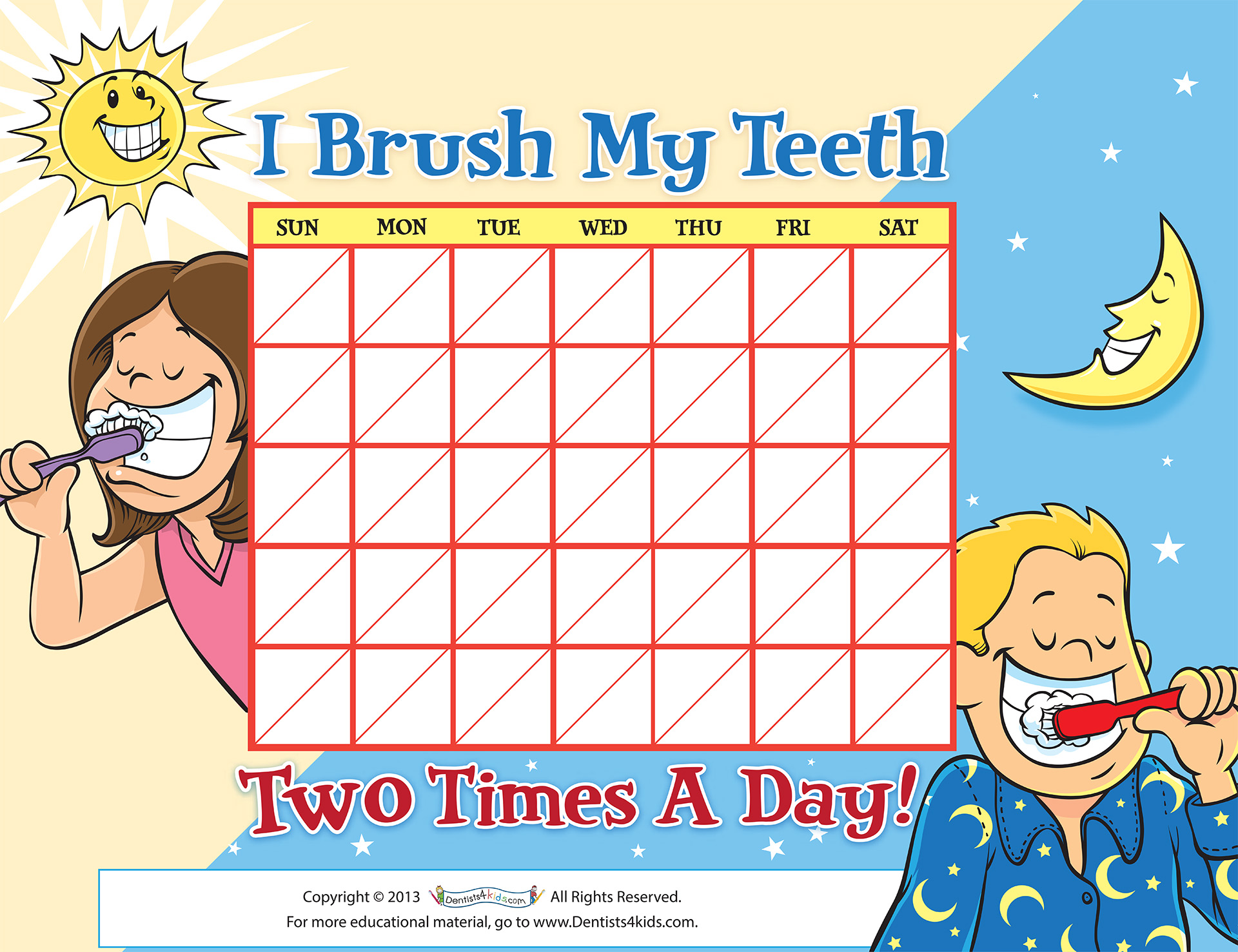
Our Other Dental Treatments
Facial Aesthetics
With Facial Aesthetics treatment at Park Street Dental, you can turn back the clock and rejuvenate your skin with just a few injections.
Invisalign
Invisalign treatment is the clear alternative to metal braces for kids, teens, and adults. Enjoy the freedom to live your life with an affordable alternative to braces.
Composite Bonding
Composite Bonding is one of the best ways to enhance your smile. It can fix and restore chipped, damaged or stained teeth.
Hygienist Services
We offer hygiene services including teeth cleaning, gum health assessment, EMS AIR-FLOW therapy and oral health advice.
Restorative Fillings
Restore your damaged tooth to full health with our Filling treatment. We offer silver and tooth coloured dental fillings.
Dentures
Smile big again and eat the foods you have always wanted! Dentures are a trusted and effective way to replace missing teeth.
Bridges and Crowns
Smile with confidence with our Bridges and Crowns treatment. These are fixed permanently and can last for many years.
Dentistry for Children
We provide young people with all aspects of dental care, placing an emphasis on oral hygiene and preventive treatment such as fissure sealants.
Dental Implants
Worried about living with missing teeth? Dental Implants is a great alternative to having dentures or bridges to replace missing teeth.
Teeth Whitening
Achieve a bright, white smile with our Teeth Whitening treatment. Lighten the natural colour of your teeth in a safe and effective way.
Quick Straight Teeth
Improve your smile with Quick Straight Teeth. These invisible braces are the most affordable, comfortable and effective way of straightening your teeth.
